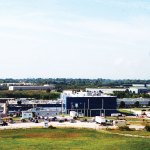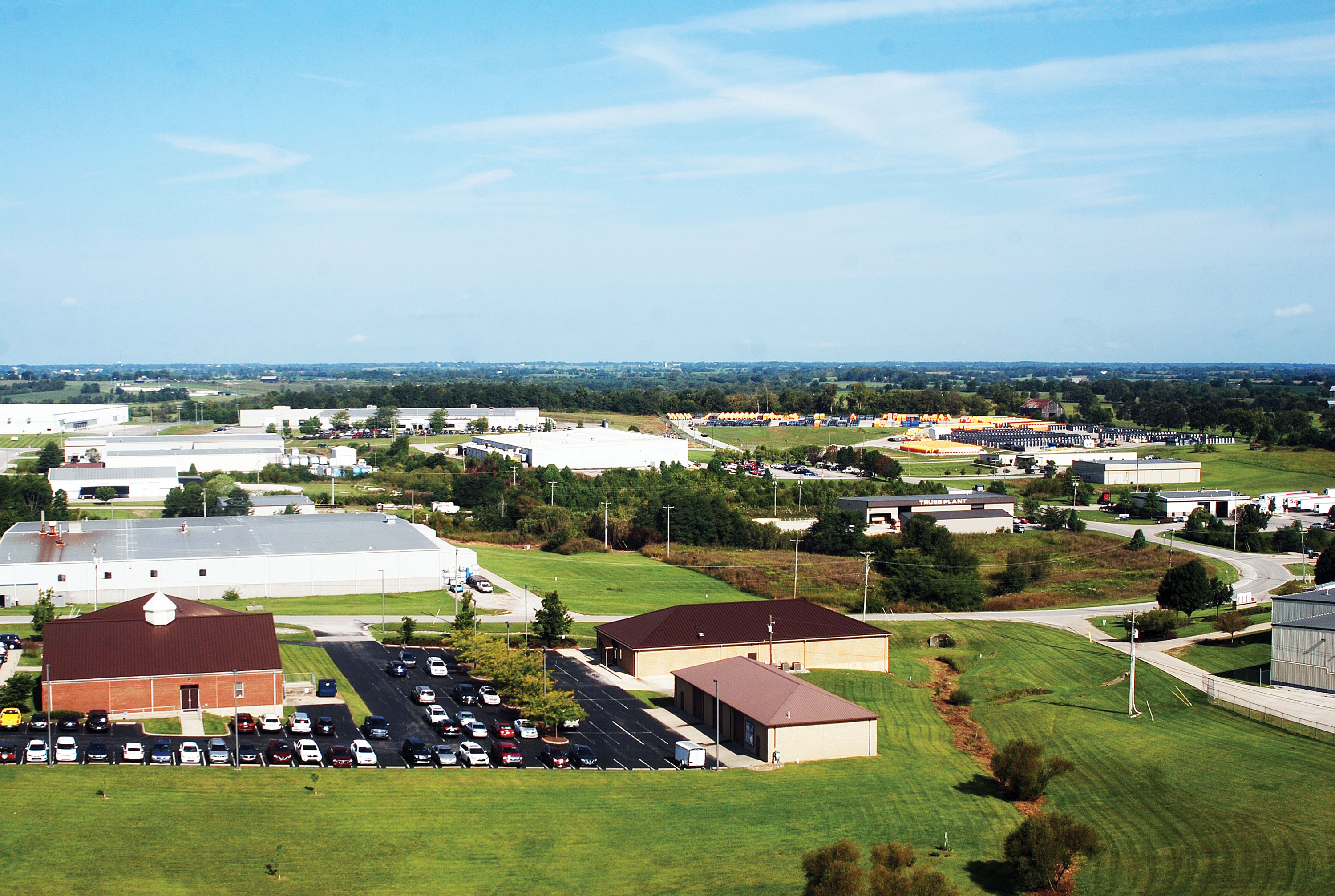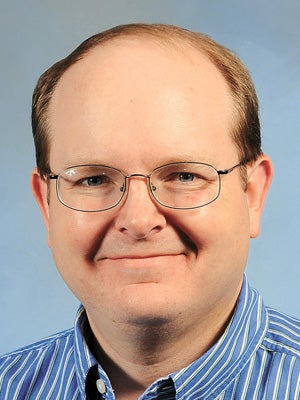Enlisting industry: Bringing jobs to Clark no small task
Published 10:17 am Monday, December 4, 2017


In community forums, one of the recurring concerns seems to be bringing in more jobs or better-paying jobs.
It’s a universal concern, regardless of the city or county, and it’s a prime way to monitor growth of the community.
When a community lands a new employer promising hundreds of jobs with good salaries, it’s front-page news.
Economic development isn’t always about the big businesses, though. Sometimes it involves bringing smaller businesses with perhaps a couple dozen jobs. Attention must be paid to keeping existing businesses in town and helping them expand by reinvesting and adding jobs. Other times, it means saying no to a company.
Since 2011, Clark County businesses have invested $236.6 million and added 1,601 full-time jobs, according to the Kentucky Cabinet for Economic Development. Some of those numbers come from new businesses, but many are from businesses that have been in Clark County for many years.
Courting new industry and supporting existing ones is a balancing act.
The process
Todd Denham, executive director of the Winchester-Clark County Industrial Development Authority since 2004, said recruiting a business can be a lot like buying a house or trying to find a spouse.
“It’s a long-term commitment,” he said.
The goal is to form a long-standing mutually beneficial relationship, and there can be a lengthy process to reach the end. Things may sour part-way through and you don’t know why. When it all works out, the benefits can be long lasting.
“To recruit an industry, you have to have a prepared community,” he said. “You have to have water, sewer, gas, electricity, land. If you don’t have these, you’re not in the game.”
The rule of thumb is there are 25,000 communities across the U.S. vying for about 250 industrial prospects.
Denham works with a number of agencies and organizations, including the Kentucky Cabinet for Economic Development, the Kentucky Association for Economic Development and its Kentucky United program along with the Bluegrass Alliance, which is based in Lexington.
“We try to work in partnership with all these entities,” he said.
There may be companies interested in Lexington, he said, but land there is at a premium.
“Fayette County has no industrial land, or very little that’s available now,” Denham said. “The surrounding counties, we have commercial land.”
With large corporations, they will often look at communities within states, often with the help of a site selection firm. Eventually, they narrow their interest to the point of visiting the communities at the top of their list.
“When a company comes to your community for that first visit, they’re looking at ways to cut you from their list,” Denham said. “We might get 30 minutes to an hour.”
If there is a second visit, Denham said the company is likely down to a handful of communities and they are looking at the bottom line: the cost of doing business.
The bottom line can make all the difference in the final decision.
When the answer is no
Like any relationship, there is no guarantee it will work, in spite of best efforts.
Denham recalled one company from a neighboring county that was interested in relocating, but wanted a number of benefits and incentives up front. Denham said he passed on that opportunity, and the company ultimately moved to another state.
Many times, the company itself will decide on another location.
About five years ago, Denham said an Italian company was looking at Winchester as a possible site for a 700,000 square-foot facility to employ about 500 people. Winchester was among three sites being considered in Tennessee and Kentucky, he said.
“It gets between us and a place in Tennessee,” he said. “We worked with the state cabinet for incentives. We worked with them on land, training and several things overall.”
Ultimately, the company decided on the Tennessee site. Denham said he learned later Tennessee had the advantage because it was closer to the source of the company’s materials and labor costs.
“You can’t do anything about that,” he said. “A lot of times, you never know why you don’t get a company.”
This year, Denham said he spent a “significant” amount of time courting a company without ever knowing what the company made or who was involved.
“It was a $250 million project,” he said. “It was a pretty good size building. Great wages. The state was extremely helpful. We knew we had all the appropriate agencies here.”
At that point, Winchester was competing against three out-of-state communities. The business decided to go elsewhere.
“The reason why is they said of the four (sites), we were the outlier on where we think our existing growth and markets are,” he said. “I feel good about that because we had a great deal put together with them that would have been beneficial to our community.”
Existing relationships
Sometimes an existing business can attract related companies or suppliers to Winchester.
One of those, Denham said, was Kentucky Heat Treating. The company started in Georgetown, but relocated to Winchester in 2004. Denham said the move was partly because of its relationship with Advanced Green Components, which makes components for bearings.
Another fairly new arrival, Senko, opened in the Winchester Industrial Park a few years ago. The transportation and logistics company has a relationship with Sekisui, Denham said, and built a cold storage facility to benefit Sekisui, as well as its regional distribution.
Retaining industry
Landing a new industry or business for a community takes a lot of work.
“It’s easier to keep the ones you’ve got than to get new ones,” Denham said. “(Recruitment and retention) are equally important. It’s a good balance there to maintain.”
Throughout the industrial park, there are companies that have been in Winchester for a number of years and have expanded with jobs as well as investment in their facilities.
According to the Cabinet, some of the biggest since 2011 include:
— Walle Corporation, which designs and prints labels, announced a $4.1 million expansion with 23 new jobs in 2011.
— Univance, which makes automotive components announced expansions of $4 million and $7 million in 2011 and 2014, respectively.
— Advanced Green Components, which makes components for bearings, announced a $11.9 expansion with 40 jobs in 2013.
— General Dynamics, a call center, added 300 jobs with a $12 million investment in 2013.
— Catalent Pharma Solutions, which produces medication, announced expansions of $35 million in 2013 and $61 million in 2015 with nearly 400 jobs projected upon completion.
— Amazon invested $20.7 million and promised up to 500 jobs when the company arrived in 2012.
— Rocky Mountain ATV, which sells parts for motorcycles and all-terrain vehicles, announced a $5 million expansion of its warehouse and distribution facility with 15 new jobs in 2015.
Room to grow
Infiltrator Systems, which has been in Clark County for 26 years, announced a $11.3 million expansion and 39 more jobs earlier this year. According to the company, which manufactures water systems, Winchester remains a good fit.
“We started in Winchester in 1991,” David Gedirits, Infiltrator’s director of manufacturing, said. “The operation was a start-up. We employed 10 to 12 people at the time.”
Some of the key attractions of Winchester included lower energy costs, a prepared workforce and a good geographic location to its customers, he said.
Through the years, including the economic crisis in 2008, Infiltrator Systems has continued to expand in the industrial park, with six buildings and approximately 300 employees. Like most companies, the economy forced Infiltrator to become much more efficient, he said.
Still, the company has continued to grow.
“We’ve had significant upgrades within the buildings themselves and processes,” he said.
Challenges
There’s always an element of competition in recruiting companies, Denham said. By the time companies are looking at specific communities, they likely aren’t looking at two close by.
“Politicians want you to cut ribbons,” he said. “If you have a company that’s looking at Richmond and two communities in South Carolina, I’d rather have them come to Richmond.”
Denham said he’s helped neighboring communities toward that end, if it means bringing jobs to the region.
“At the end of the day, everyone wants jobs in Clark County,” he said.
Winchester and Clark County are in a good place, especially with plans moving ahead for a new water treatment plant for added infrastructure.
Keeping those industries already here is another challenge, whether helping with expansion or other issues.
“We can always improve our retention,” he said. “It’s easy to take them for granted. Hopefully they know to pick up the phone and call me if they have a problem.”
There are some issues that are out of Denham’s hands.
“The biggest challenge for the community is a lack of population growth,” he said. “When your population really isn’t growing, that’s a big problem.”
Moving ahead
Denham said Winchester and Clark County are in a good place, with the sixth phase of the industrial park nearly full.
Throughout the park are successful businesses including:
— Winchester Farms Dairy, which processes milk and other beverages for Kroger stores in neighboring states.
— Mansea Metal, which produces metal roof components and pole barn kits
— Doublestar Manufacturing, which manufactures components for firearms.
— Alltech Algae, which cultivates algae for aquaculture, livestock nutrition and pet nutrition.
— God’s Pantry, which has a warehouse for food storage.
— Kraft Manufacturing, which builds equipment for horse walking for the horse industry
— Sekiski S-LEC America, which makes films used in glass for automobiles and architecture
— Winchester Coatings, which coats a variety or metal products.
There’s still room for more, Denham said. About 180 acres are still available, along with the possibility of more, he said.
“I really think we’re in good shape,” Denham said. “The city and county work great together. They’re progressive. They think outside the box. We have the tools to be successful and we have been successful.”









